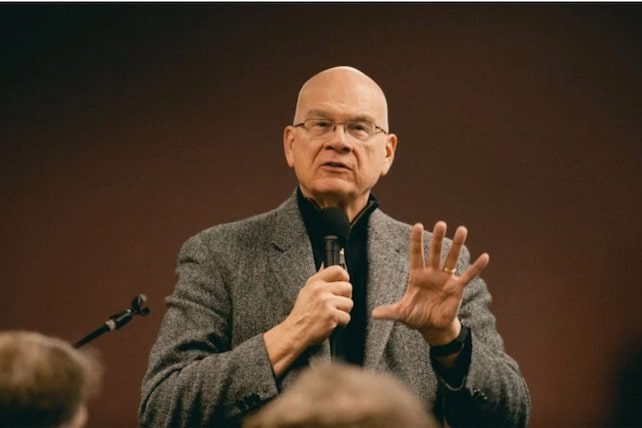“This was never the neutral territory,” he said. “We always had opposition.”
In 2017, Princeton Theological Seminary announced plans to give Keller the Kuyper Prize for Excellence in Reformed Theology and Public Witness but later reversed course due to concerns about Keller’s views on women in ministry and LGBT rights.
Early on in the book, Keller quotes the late Desmond Tutu, the South African cleric; the late author bell hooks; and former New York Times columnist, now Atlantic columnist Elizabeth Bruenig about the importance of forgiveness and the need to balance justice with recognizing the humanity of those who do harm.
The quote from hooks, taken from a conversation with poet Maya Angelou, makes that point in a forceful way.
“For me,” hooks said, “forgiveness and compassion are always linked: How do we hold people accountable for their wrongdoing and yet at the same time remain in touch with their humanity enough to believe in the capacity to be transformed?”
In the book, Keller lays out why forgiveness is needed and outlines a step-by-step approach to how forgiveness can be granted in a healthy way — both on a societal level and in the mundane, day-to-day conflicts most people experience.
In an interview, Keller admitted that in the past, he’s struggled with granting forgiveness.
Early in his marriage, Keller said, he at times withheld forgiveness from his wife, even if she said she was sorry for doing something. Doing that, he said, gave him a sense of superiority but also allowed him to hold on to the sense he had been wronged. That led to struggles in their marriage — something they had to work through.
RELATED: Princeton Theological Seminary reverses decision to honor Redeemer’s Tim Keller
Withholding forgiveness can give people a sense of power over others, he argues.
“If you are out to punish someone,” he said, “you make it really hard for them to ask for forgiveness.”
For Keller, one of the key aspects of forgiveness is what he calls “willing the good of the wrongdoer.” The idea is drawn from the command of Jesus that his followers love their enemies.

